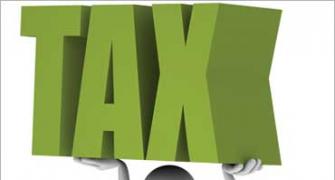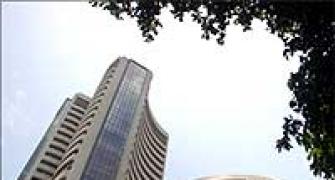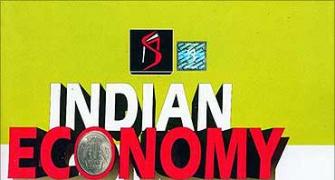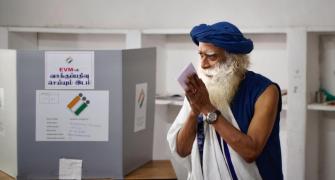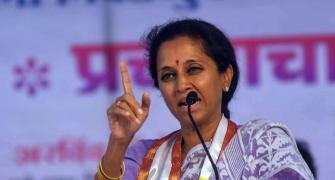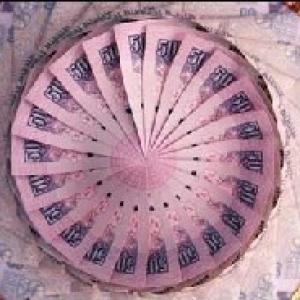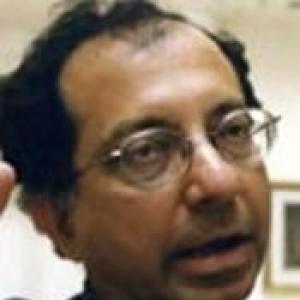Finance Minister Pranab Mukherjee's arguments of reining in fiscal deficit at 4.6 per cent of GDP in the next financial year have failed to cut ice with several economists. At a meeting of the Institute of International Finance, a global association of financial institutions, Standard Chartered Bank Chief Economist, Gerard Lyons, raised doubts over the Centre's projections of reducing fiscal deficit from 2010-11's estimate of 5.1 per cent. "I am skeptical whether fiscal deficit can be reduced as planned," he said.
At a meeting of the Institute of International Finance, a global association of financial institutions, Standard Chartered Bank Chief Economist, Gerard Lyons, raised doubts over the Centre's projections of reducing fiscal deficit from 2010-11's estimate of 5.1 per cent. "I am skeptical whether fiscal deficit can be reduced as planned," he said.
Chief Economic Advisor, Kaushik Basu, said if global oil prices remain at high levels, the government will have to either pass the burden to the people or take the burden on itself.
If the government decides on the latter option, it will also have to shoulder the burden of fiscal deficit, since Mukherjee has categorically said that subsidies would only be given in cash.
"Under such circumstances (if oil price rise is significant) the government will either have to bear the additional cost or pass it on to the consumer. However, in such a case, either decision would be difficult," Basu said.
"If crude prices go up sufficiently high, so would our calculations on subsidies," Basu said.
The Budget has proposed Rs 23,640 crore (Rs 236.4 billion) as oil subsidy in the next financial year.
Basu said the government also has to take a difficult call on diesel deregulation amid the continuing high oil prices at the global level.
The Budget has projected fiscal deficit to fall to 4.6 per cent of GDP in 2011-12, against the likely deficit of 5.1 per cent in the current financial year.
Many economists have already
Yesterday, the finance minister said there should not be any scope for skepticism, since the figure was arrived at after careful calculation.
He added that since the government will not have the luxury of receipts from spectrum sale for 3G and wireless broadband access services in the next financial year, it would not spend an additional Rs 50,000 crore (Rs 500 billion) on infrastructure, social sectors and subsidies.
He, however, agreed that the uncertainty over global crude prices remains. Prime Minister's Economic Advisory Council Chairman C Rangarajan, however, said global crude prices may not remain at their current levels.
The Indian basket of oil has already crossed $100 a barrel. Rangarajan said all policy measures, like rate increases and intervention in grain markets, will be undertaken to bring down inflation to the comfort zone of 4-5 per cent.
RBI Deputy Governor Subir Gokarn said rising crude and commodity prices could derail efforts to contain inflation, which has started moderating.
"That it (inflation) is moving downwards is a reflection of our monetary actions. But the risk of it turning around because of energy and food remains," he said. Despite moderation, inflation in January stood at 8.23 per cent.


